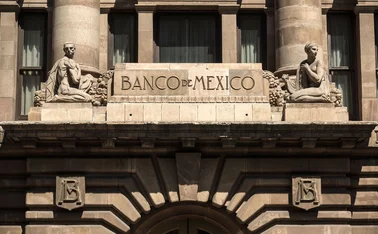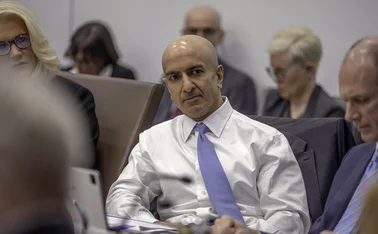
Nigerian monetary policy a ‘Faustian bargain' with hot money, says deputy

Nigerian monetary policy is a "Faustian bargain" that is allowing portfolio investors to make "a killing" in the west African country thanks to rock bottom interest rates in advanced economies, according to Central Bank of Nigeria deputy governor Kingsley Moghalu.
Addressing an audience at the Woodrow Wilson Center in Washington, DC, last week, Moghalu – who has responsibility for financial stability at the Nigerian central bank – said that for an import-dependent economy like Nigeria, maintaining a stable exchange rate is a key priority as imports can become "a pass-through channel for inflation".
He said the monetary policy committee at the Central Bank of Nigeria, on which he sits, has discussed ways of dealing with flows of hot money heading for Nigeria in a "search for yield", but did not say whether any new measures were being considered to control them. Moghalu said that to keep the currency stable, Nigeria has to "ensure significant inflows of foreign capital, and bring in foreign reserves and foreign exchange".
However, he said, the challenge for African policy-makers is to "direct foreign investment to the areas that are truly in their own national priority interest – not according to the priorities of foreign investors".
Portfolio managers, he said, "are making a killing from portfolio investments in Nigeria, precisely because the monetary policy rate at this point in time is reasonably high", compared with "the quantitative easing going on here [in the US], with the obvious objective of keeping interest rates low for the time being".
Moghalu also said the Central Bank of Nigeria has pioneered a growing trend in Africa to hold portions of central bank reserves in renminbi – a reflection, he said, "of the evolving reality of international finance and the outcomes of China's economic power".
"China has become very alluring and appealing as an economic power to many developing countries," he said, adding: "We all know it's only a matter of time before the Chinese currency becomes fully convertible.
"When you look at the Chinese world view and their extreme adeptness at strategy, you can see they know where they're going and exactly how they're going to get there. They want to manage the process of internationalising or converting the renminbi without the disadvantages of having a convertible currency."
Small business lending scheme details revealed
The Central Bank of Nigeria has also released details on its new 220 billion naira ($1.34 billion) scheme to direct lending to micro, small and medium-sized enterprises (MSMEs), first announced on Friday. The participating financial institutions (PFIs) will include non-governmental organisations (NGOs) and micro-finance institutions, which will be able to access funding at an interest rate of 9% per annum, and lend it to other entities with a spread of up to six percentage points per annum.
The central bank's scheme will provide liquidity to PFIs on a maximum three-year tenor, with most institutions limited to 5 million naira or 10 million naira, but national microfinance institutions will be able to access 1 billion naira.
There will also be a credit guarantee scheme, covering up to 80% of any default under the scheme, which will also be available to other ‘deposit money banks' in Nigeria. The guarantee too has a maximum tenor of three years, and attracts a fee of 1% of the guarantee's face value, payable back to the Central Bank of Nigeria-administered fund.
Only users who have a paid subscription or are part of a corporate subscription are able to print or copy content.
To access these options, along with all other subscription benefits, please contact info@centralbanking.com or view our subscription options here: www.centralbanking.com/subscriptions
You are currently unable to print this content. Please contact info@centralbanking.com to find out more.
You are currently unable to copy this content. Please contact info@centralbanking.com to find out more.
Copyright Infopro Digital Limited. All rights reserved.
As outlined in our terms and conditions, https://www.infopro-digital.com/terms-and-conditions/subscriptions/ (point 2.4), printing is limited to a single copy.
If you would like to purchase additional rights please email info@centralbanking.com
Copyright Infopro Digital Limited. All rights reserved.
You may share this content using our article tools. As outlined in our terms and conditions, https://www.infopro-digital.com/terms-and-conditions/subscriptions/ (clause 2.4), an Authorised User may only make one copy of the materials for their own personal use. You must also comply with the restrictions in clause 2.5.
If you would like to purchase additional rights please email info@centralbanking.com







